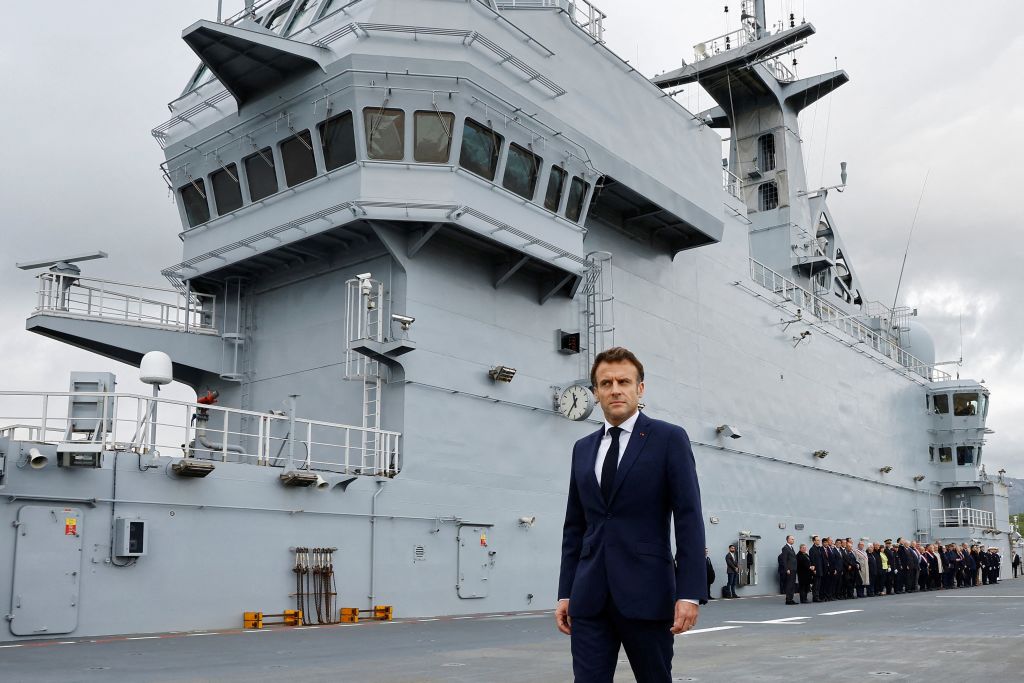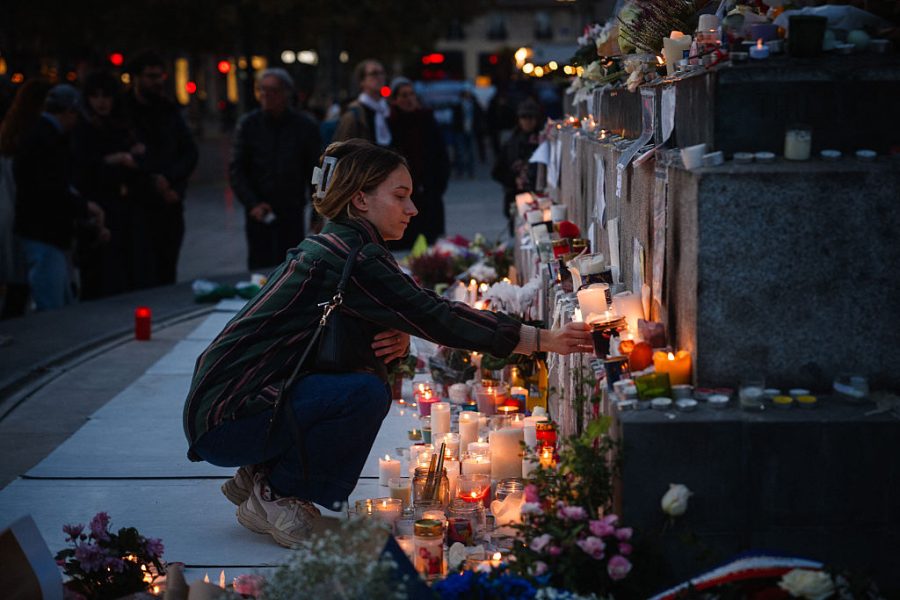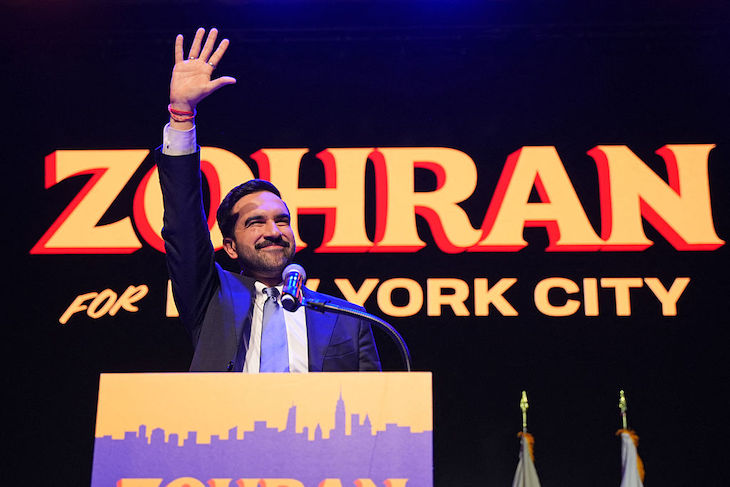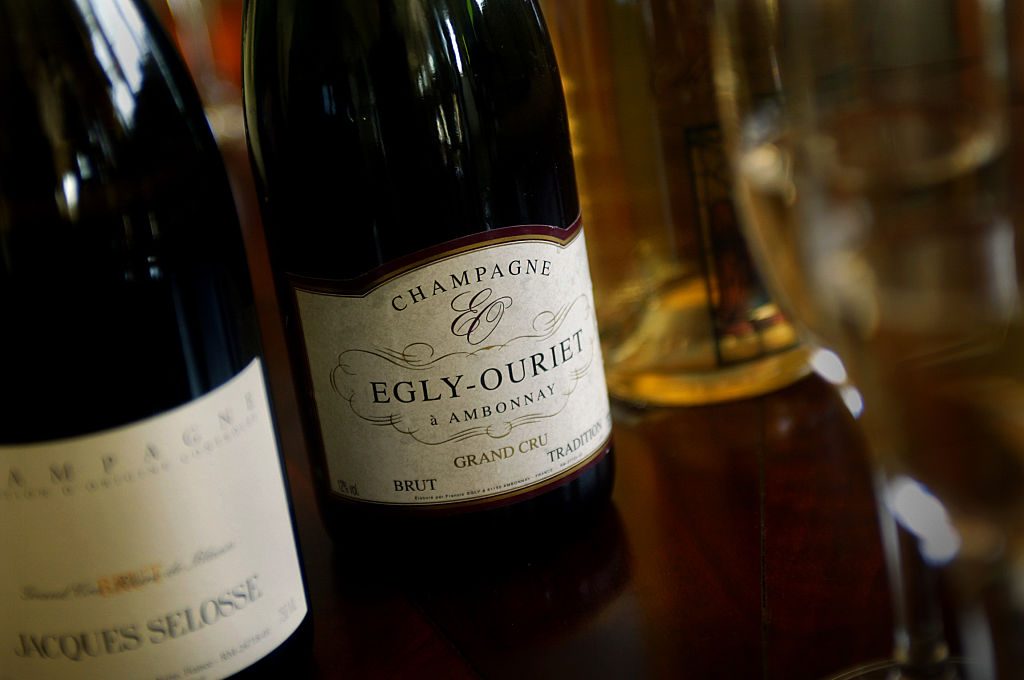Emmanuel Macron is thinking and saying the unthinkable for a French president of the Republic. This weekend he suggested that French nuclear weapons — the holy grail of French security, intended to ensure that France never relives 1940 — could be put at the disposal of the European Union’s defense.
For Macron this is a make or break moment for the EU to remain a world power or face oblivion
His comments drew strident criticism from across the political spectrum. “Macron is becoming a national danger,” claimed the Rassemblement National’s Thierry Mariani. “And after France’s nuclear weapon,” he added, “it will be France’s permanent seat on the UN Security Council which will be sold off cheaply to the EU.” Meanwhile France’s center-right candidate for the June 9 European elections, Francois-Xavier Bellamy, described Macron’s statement as of “extreme seriousness” because it touches on “the very essence of French sovereignty.” The far-left La France Insoumise joined in the chorus of criticism demonstrating how France’s nuclear weapon enjoys cross-party consensus. Only the Greens and Macron’s coalition supported the idea.
So what is Macron up to? First, it is a diversionary tactic from his coalition’s mediocre standing in the polls ahead of the European parliamentary elections. According to a major opinion poll out today, Macron’s candidate, the unknown, unloved and unfortunate Valérie Hayer is on 17 percent, trailing the RN’s Jordan Bardella on 32 percent, with the added humiliation that she may yet be overtaken by the moderate socialist Raphäel Glucksmann on 14 percent. An RN victory of this magnitude would be the greatest of any party in any European election since they began in 1979. A crushing defeat of Macron’s pro-EU coalition by the Euroskeptic RN and the prospect of a dissolution of parliament, as Marine Le Pen has called for and Macron himself has menacingly threatened, has been dominating French media.
Second, it is the application of a long and deeply held belief since 2017 that Europe must organise an autonomous credible defense and no longer rely on the Americans. Macron made this clear in a speech at the Sorbonne in 2017 and in “Sorbonne 2” on April 25. For him this is a make-or-break moment for the EU to remain a world power or face oblivion: “Our Europe today is mortal and it can die.” Throwing France’s sacrosanct nuclear weapon into the debate is calculated to alarm and demonstrate the gravity of the moment.
Finally, the president’s apparent willingness to put France’s greatest asset at the disposal of the EU lays down a clear marker for Macron to take on a leadership role in the EU after he has stepped down from the presidency in 2027 following his maximum two-term mandate.
But instrumentalizing France’s nuclear weapon is fraught with uncertainty. France struggled to produce a nuclear bomb, finally doing so in 1960 after the US (1945), the USSR (1949) and Britain (1952). It was a tribute to the determination of General de Gaulle and as with much of the general’s political handiwork was shrouded in myth-making. As myth would have it the Americans denied France any help in its development thereby giving the impression that the force de frappe (the French nuclear deterrence force) was “entirely homegrown” and thus so much more French and independent. Yet in reality from the late 1960s until the mid-1970s President Nixon authorized secret unofficial assistance for the French bomb’s development, as Richard Ullmann’s 1989 article “The Covert French Connection” and subsequent declassified documents reveal. Nonetheless, the nuclear weapon has been and remains an object of pride and symbol of French strategic autonomy. In wishing to put it at the disposal of the EU will alarm most French, not least because Brussels will be drawn into discussions on the circumstances of its use.
To be fair to Macron, the concept of France using nuclear weapons to defend its allies is not new. France’s nuclear doctrine, like Britain’s, is built on the notion of defending to the last the state’s “vital interests.” But “strategic ambiguity” is intentionally cultivated about what “vital” means. For over a decade Britain and France’s defense reviews have stated that a strategic attack on either state’s vital interests would constitute an attack on the other. And Macron’s predecessors going back to Hollande, Sarkozy and even Chirac hinted that in the context of Europe nuclear deterrence could not be conceived in isolation. This kind of French nuclear reassurance is therefore not new. But at a time when most French feel their country is being relegated to the second division and when widespread Euroskepticism is on the rise, talk of putting France’s international trump card at Europe’s disposal can only increase anxiety and be reflected in the results on June 9.
This article was originally published on The Spectator’s UK website.


























Leave a Reply